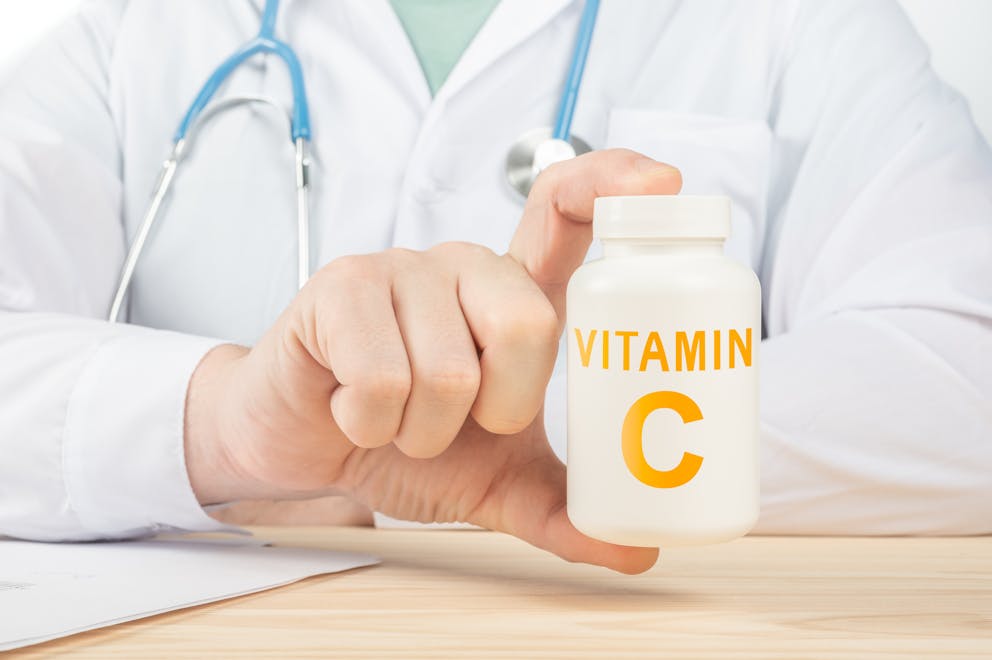Understanding Types of Collagen

How to Read Your Body
Learn to recognize common symptoms and uncover their underlying health issues
Understand the signs of nutrient deficiencies to manage your health
Explore the four metabolic body types and the core factors that influence them
Interpret your body's signals from head to toe to identify potential health concerns

How to Read Your Body
Learn to recognize common symptoms and uncover their underlying health issues
Understand the signs of nutrient deficiencies to manage your health
Explore the four metabolic body types and the core factors that influence them
Interpret your body's signals from head to toe to identify potential health concerns

How to Read Your Body
Learn to recognize common symptoms and uncover their underlying health issues
Understand the signs of nutrient deficiencies to manage your health
Explore the four metabolic body types and the core factors that influence them
Interpret your body's signals from head to toe to identify potential health concerns

How to Read Your Body
Learn to recognize common symptoms and uncover their underlying health issues
Understand the signs of nutrient deficiencies to manage your health
Explore the four metabolic body types and the core factors that influence them
Interpret your body's signals from head to toe to identify potential health concerns

How to Read Your Body
Learn to recognize common symptoms and uncover their underlying health issues
Understand the signs of nutrient deficiencies to manage your health
Explore the four metabolic body types and the core factors that influence them
Interpret your body's signals from head to toe to identify potential health concerns

How to Read Your Body
Learn to recognize common symptoms and uncover their underlying health issues
Understand the signs of nutrient deficiencies to manage your health
Explore the four metabolic body types and the core factors that influence them
Interpret your body's signals from head to toe to identify potential health concerns

How to Read Your Body
Learn to recognize common symptoms and uncover their underlying health issues
Understand the signs of nutrient deficiencies to manage your health
Explore the four metabolic body types and the core factors that influence them
Interpret your body's signals from head to toe to identify potential health concerns

How to Read Your Body
Learn to recognize common symptoms and uncover their underlying health issues
Understand the signs of nutrient deficiencies to manage your health
Explore the four metabolic body types and the core factors that influence them
Interpret your body's signals from head to toe to identify potential health concerns

How to Read Your Body
Learn to recognize common symptoms and uncover their underlying health issues
Understand the signs of nutrient deficiencies to manage your health
Explore the four metabolic body types and the core factors that influence them
Interpret your body's signals from head to toe to identify potential health concerns

How to Read Your Body
Learn to recognize common symptoms and uncover their underlying health issues
Understand the signs of nutrient deficiencies to manage your health
Explore the four metabolic body types and the core factors that influence them
Interpret your body's signals from head to toe to identify potential health concerns

How to Read Your Body
Learn to recognize common symptoms and uncover their underlying health issues
Understand the signs of nutrient deficiencies to manage your health
Explore the four metabolic body types and the core factors that influence them
Interpret your body's signals from head to toe to identify potential health concerns
Many people are unaware of the different types of unique roles collagen plays in our bodies.
Learning more about the basic functions of collagen in the body will be helpful to those looking to improve their overall health.
Understanding Collagen and Its Importance
Collagen is the protein powerhouse that holds everything together in your body. Like a matrix of strands, collagen keeps things in place.
The Role in Scar Tissue Formation:
Injuries happen, and when they do, collagen steps in to form scar tissues.
Tendons and Ligaments: The Strength Within
Tendons and ligaments, those fibrous bands connecting muscles to bones, rely on Type-1 Collagen for their strength.
Bones And Teeth - A Solid Foundation
About 90% of bone mass is made up of type-1 collagen. It's the secret ingredient for a strong foundation.
Collagen isn't just one thing. There are different types with specific roles in our bodies. Let's dive into the five fundamental types - from types 1 through 4. Each type has its unique function, whether it's for skin health or joint flexibility.
So stick around as we explore how each type contributes to our well-being.
The Four Key Types of Collagen
Let's dive into the world of collagen, explicitly focusing on five main types - types 1 through 4.
Type 1 Collagen
Type-1 collagen, the most abundant form in our bodies, is crucial in maintaining skin elasticity and health. It's found in our skin, tendons, connective tissues, and arteries.
Type 2 Collagen
Moving onto Type-2 collagen, this is your body's go-to for building joint cartilage. If you are experiencing arthritis, you might need a collagen boost.
Type 3 Collagen
Type-3 collagen supports liver functionality and helps with detoxification, offering excellent support to your liver.
Type 4 Collagen
Last but certainly not least, we have type-4 collagen. This rare gem is responsible for healthy hair follicle development. Want luscious locks? Get your type-4 collagen fix.

Role of Vitamin C in Metabolizing Collagen
Vitamin C is an essential nutrient that ensures collagen molecules stay solid and stable.
In simpler terms, vitamin C teams up with two enzymes - prolyl hydroxylase and lysyl hydroxylase - to keep collagen's triple helix structure in check.
Without enough vitamin C, your connective tissues might start acting up, like teeth playing loose or gums bleeding.
Getting enough vitamin C means healthier ligaments, cartilage, and skin.
Impact of Digestive Problems on Absorbing Collagen
Your digestive health an be a roadblock when absorbing collagen if you have any digestive issues.
If your stomach acidity is low it can hurt your ability to digest collagen-rich foods.
Low Stomach Acidity's Impact On Digesting Collagen
Stomach acid quickly breaks down proteins like collagen. But if you have low stomach acidity, digestion becomes a struggle, and nutrients go unabsorbed.
So, if you suffer from conditions causing reduced stomach acid production - known medically as hypochlorhydria - proper digestion and absorption become a real challenge.
Maintaining Healthy Levels of Stomach Acid for Optimal Absorption
Regarding collagen absorption, your stomach's acidity plays a crucial role. If you're dealing with low stomach acid levels, be sure to take action and remedy this issue.
Betaine Hydrochloride to Aid in Better Nutrient Absorption
Betaine hydrochloride, or betaine HCL, is one solution worth considering. This compound can help boost your gastric juice production and enhance the breakdown of proteins like collagen in your gut.
The Use of Apple Cider Vinegar to Improve Digestion
Apart from Betaine HCL, another natural remedy that could aid digestion is apple cider vinegar (ACV).
Taking ACV before meals promotes healthy pH balance and improves overall digestive function, ensuring optimal nutrient uptake, including collagens.
Making slight alterations to our daily habits may significantly enhance the body's capacity for nutrient absorption, thus helping us achieve better health.
Ensuring Adequate Intake of Vitamin C Through Diet
A good diet is vital to good health, and Vitamin C stands out as a potent nutrient.
Vitamin C is essential for collagen metabolism and other critical bodily functions.

Boost Your Vitamin C with Veggies
Veggies are the way to go for those wanting to ensure their Vitamin C intake is sufficient. Bell peppers are like little vitamin C powerhouses. Broccoli, kale, and Brussels sprouts are also good options for increasing intake.
Signs You're Missing Out on Vitamins
Vitamin deficiencies can sneak up on you, so keep an eye out for these signs:
Feeling tired or weak? You might need more B12 or iron.
Slow healing wounds? Your zinc or vitamin C levels might be low.
Bleeding gums when brushing? It's time to up your vitamin C game.
Before making any changes to your diet, be sure to consult with a healthcare professional.
Zinc Carnosine and Collagen
Zinc carnosine and collagen are all excellent supports for health in the body. Zinc carnosine helps keep our tummies healthy by protecting the walls of our intestines. It ensures there are no cracks or holes.
Collagen strengthens our skin, bones, and joints. Both zinc carnosine and collagen play essential roles in keeping us healthy, but it's always a good idea to talk to a doctor before making any changes to your diet.
Conclusion
Collagen is crucial for skin, joint, and overall health. Understanding its types and the role of nutrients like vitamin C is essential.
Maintaining optimal stomach acidity aids collagen absorption, with remedies like betaine hydrochloride or apple cider vinegar potentially helpful.
A diet rich in vitamin C from vegetables supports collagen synthesis. Supplements like zinc carnosine can complement collagen benefits, but consulting a healthcare professional is wise. Ensuring you have proper collagen levels is pivotal to overall health.
Previous blog
Get Rid of Low Back Pain FastNext blog
Why Lotion Never Fixes Dry Cracked HeelsTags

Popular
08/21/2024
55K views
02/23/2025
46.3K views
11/18/2024
277.5K views
03/18/2024
11/21/2022




